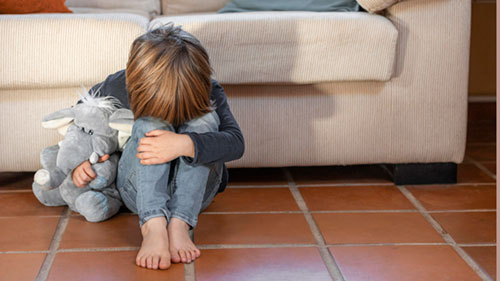When children are separated from their parents, specifically the mother, they may experience separation anxiety.

A child below the age of 8 months is new to this world and its surroundings. It is still unsure of what is safe and what is not. However, in the period of 8-14 months, the child has some bearing on what is safe and what is dangerous. The child feels safe with the parents and perceives strange places and people as unsafe. THIS IS A NATURAL AND PROTECTIVE INSTINCT!! However, leaving the child back home and getting back to work further adds to the guilt of the parents, especially the mother.
Parents/Caregivers can follow these tips to lessen separation anxiety:
- Conversing with the child in a calm manner.
- Creating quick goodbye rituals – like giving kisses, giving special blanket or toy on leaving.
- Being consistent – doing the same drop-off with the same people at the same time each day. This will build trust in him/her.
- Giving attention/Spending a few minutes before leaving.
- Practice being apart – starting from a smaller duration to a longer one.
This will give your child a chance to prepare, experience and thrive in your absence.
By following the above, separation anxiety in children will go off when the child attains 2 to 3 years of age.
But for some children, in spite of parents’ efforts, separation anxiety does not go away. If the condition is extreme and interferes with daily activities like school, disturbs sleep and causes behavioural issues or continues for long durations, the child may have the condition Separation Anxiety Disorder (SAD).
These children may exhibit any of the following symptoms:
- Excessive distress, being very clingy at all times
- Severe crying
- Nightmares
- Reluctance to go to school or other places
- Reluctance to go to sleep without the primary caregiver
- Repeated physical complaints (headache, stomach ache, etc.)
- Worry about getting lost or harm coming to primary caregiver
SAD can occur after a stressful life event such as:
- Moving to a new environment
- Switching school
- Losing a close family member
- Disturbance in the married life of parents
Treatment:
Reassurance/Spending time with the child.
If you notice any red flags, parents can consult a pediatrician who will prescribe appropriate strategies that will help the child.

Dr Pushkala M.S
Consultant Pediatrician
Kauvery Hospital Chennai

